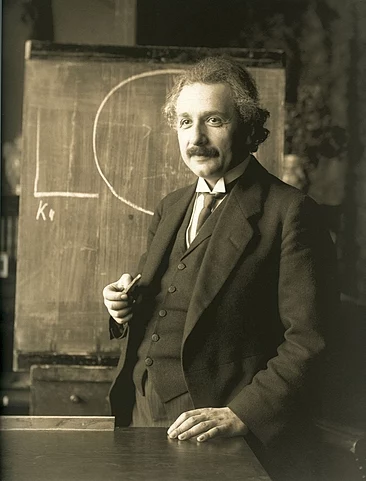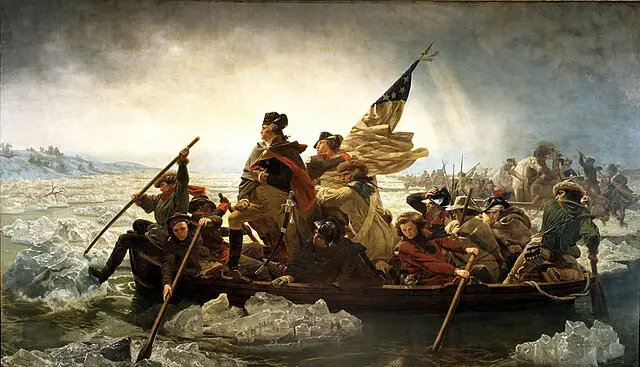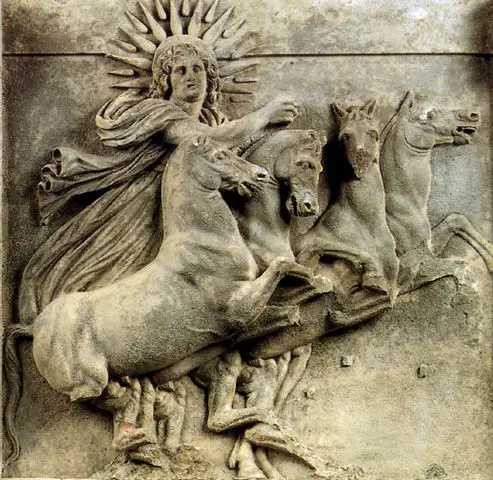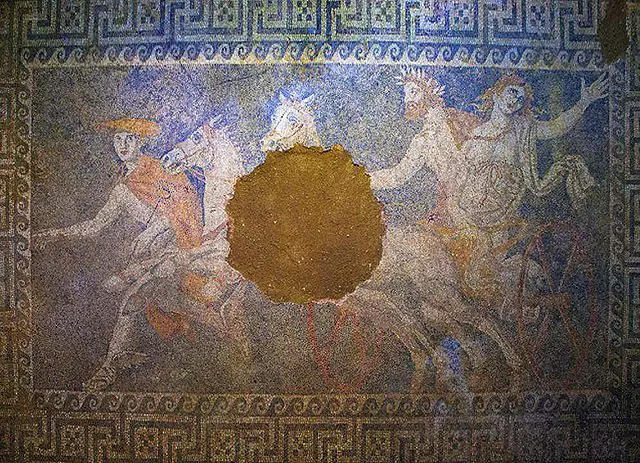The modern era started towards the end of the medieval era when mankind started to create scientific inventions. From the late 15th century to the modern day influential scientists would cement their legacy by making important discoveries which still influence us today.
In order to land on this list a scientist would have had to be born after the early 15th century. Further, the scientists’ influence must have impacted billions of people worldwide and continue to do so.
The top 7 most influential scientists of the modern era are as follows:
- Albert Einstein
- Charles Darwin
- Edwin Hubble
- Isaac Newton
- Thomas Edison
- Marie Curie
- Nikola Tesla
Each of the above scientists have profoundly influenced the way that our world has developed. Under each scientist I provide further reading so you can see in detail how their influence continues to shape our world.
Here at The History Ace I strive to publish the best history articles on the internet. If you liked this article then feel free to sign up for the free newsletter and share around the web.
Without further ado, here are the top 7 most influential scientists of the modern era.
Albert Einstein

| Born | 14th of March, 1879 |
| Died | 18th of April 1955 |
| Famous Quote | “Life is like riding a bicycle. To keep your balance, you must keep moving.” |
| Known For | Creating theory of relativity, unlocking the atom, gravity waves |
| Area Of Influence | Europe and United States |
| Further Reading | 3 Ways Relativity Change The World Forever |
Albert Einstein profoundly changed the way we view our universe. Few scientists have had the influence that Einstein has had.
When Einstein was still a graduate student he decided to challenge the contemporary view of gravity. Over the coming years he would publish work that highlighted how gravity does not pull things to the earth, as Newton suggested, but rather gravity pushes objects towards earth.
What Einstein had discovered was that gravity was energy and that this energy was correlated to the object’s mass. If an object had a large enough mass then it would start to warp space around itself causing distortions.
These distortions in turn would create pressure which would push space and energy back towards the object. This pushing is what we refer to as gravity.
This was groundbreaking as for the first time Einstein had demonstrated that space, time, and mass are all correlated. What this means was that Einstein had given humanity the ability to harness energy from mass or begin to explore the universe.
Since Einstein’s death in 1955 the world has been forever changed. Today when people look up at the sky the reason they can understand how the universe works is because of Einstein.
Other large scientists have been greatly influenced by Einstein. One of the major ones was Stephen Hawking who demonstrated that black holes emitted radiation and further confirmed that Einstein’s theory of relativity was correct.
From splitting the atom, gravity waves, and opening up the universe for exploration Einstein’s influence has impacted billions of people worldwide. As a result he firmly lands on this list of the top 7 most influential scientists of the modern era.
Charles Darwin
| Born | 12th of February, 1809 |
| Died | 19th of April, 1882 |
| Famous Quote | “A man who dares to waste one hour of time has not discovered the value of life.” |
| Known For | Circumnavigating the globe, Publication of natural theory law, ushering in an age of science in society. |
| Region of World | England, 19th century |
| Further Reading | How Charles Darwin Changed Society and History Forever |
Charles Darwin in many ways was the world’s first modern biologist. Growing up in England during the early 19th century Darwin’s family wanted him to follow in his fathers footsteps and study to become a doctor.
However, the young Charles Darwin was drawn to studying all forms of life. Above all he was fascinated from an early age at cataloging different types of animals and plants he would come across.
Because of this the University of Cambridge would admit Charles Darwin to study in the fledgling field of natural science, modern day biology.
During his time studying at Cambridge in England the young Charles Darwin was given the opportunity to travel aboard a 5 year voyage on the HMS Beagle. This 5 year voyage would travel around the equator.
It was on this voyage that Charles Darwin would catalog the different types of plants and animals he would come across. Upon his return to England he would publish his On The Origin Of Species.
This book made the argument that life evolves to best suit its environment. This was groundbreaking as it directly challenged the authority of Darwin’s time who instilled that life was divinely created and that man was created to dominate others including animals.
Charles Darwin’s influence today can be felt across society. He demonstrated that the human race is far older than previously thought and that we evolved from monkeys. If it was not for Charles Darwin then who knows what theories would have evolved.
Today all modern biologists build off Darwin’s theory of evolution. Modern medicine and research is a direct result of Darwin’s exploration and cataloging of various animals.
His influence has impacted billions of people worldwide and continues to do so every year. As such he firmly lands on this list of the top 7 most influential scientists of the modern era.
Edwin Hubble
| Born | November 20th, 1889 |
| Died | September 28th, 1953 |
| Famous Quote | “The History of astronomy is a history of receding horizons.” |
| Known For | Discovering other galaxies, universe is expanding |
| Region of World | United States, 19th and early 20th century |
| Further Reading | The 2 Things That Make Edwin Hubble So Famous |
Edwin Hubble’s influence is subtle but vast. Modern countries have created entire defense systems from his work. Further, the entire modern field of astronomy is based around his observations.
Edwin Hubble discovered 2 things that forever changed the fate of humanity. The first, that there is more than one galaxy in our universe. Second, as light travels it shifts down in frequency to emit a red light.
In the early 20th century Edwin Hubble traveled to California in the United States to look through the brand new Hooker Telescope, then the most powerful one ever built.
What he discovered was that the furthest objects in view were not stars, but rather they were entire galaxies and there were billions of them.
This forever changed how humanity views the cosmos. No longer were there only one galaxy in the observable universe, there were billions of them. Each of these galaxies could hold habitable planets or even intelligent life.
This discovery will forever change how we look at the universe and allow mankind to eventually stretch their legs and colonize the stars.
However, Edwin Hubble’s influence does not end there. His more important discovery was that as light travels away from you it shifts darker in color to a red hue. This revolutionized the field of optics, which the internet is based on.
Today billions of people worldwide interact and communicate with each other using light as an information source. Hubble’s discovery that light shifts colors as it travels influenced the development of fiber optic internet cables, which we communicate with today.
Due to this Edwin Hubble has become one of the most influential scientists of the modern era and lands on this list.
Isaac Newton
| Born | 4th of January 1643 |
| Died | 31st of March 1727 |
| Famous Quote | “I can calculate the motion of the heavenly bodies but not the madness of people” |
| Known For | Creating modern calculus, advancing optics, creating a modern theory of gravity. |
| Region of World | England, 17th-18th century. |
| Further Reading | Isaac Newton’s 3 Biggest Impacts Upon Society |
Before Isaac Newton the world still followed Aristotle’s view of gravity. Those objects were propelled through the air and towards the ground by a magical force that mankind couldn’t understand.
Isaac Newton from an early age was known to be both curious and hyper competitive. Often he would bite off more than he could chew and get in arguments and fights.
This personality aided him during his graduate studies when he decided to challenge both the field of physics and mathematics at the same time.
For mathematics, Newton discovered that the then primitive concept of trigonometry was limited as it could not be expanded to help explain geometric models.
So to fix this issue Newton created the field of calculus and the binomial theorem. This was groundbreaking as it allowed for an accurate explanation of advanced concepts such as gravity.
It was not enough to have forever shaped mathematics. Newton then applied this new discovery of the binomial theorem to demonstrate that objects fall to the earth from gravity.
Using mathematics Newton demonstrated that the reason the moon does not fall to the earth is because it is falling sideways around the curvature of the earth. That the moon was perpetually falling around the earth, or orbiting it.
Today we can see the influence of Newton in everyday life. Modern planes can fly because of Newton. Physics and mathematics have evolved to explain highly abstract theories and concepts because of Newton.
Simply put, Newton has influenced the lives of billions of people worldwide. As such he firmly lands on this list.
Thomas Edison
| Born | February 11th, 1847 |
| Died | October 18th, 1931 |
| Famous Quote | “We often miss opportunity because it’s dressed in overalls and looks like work.” |
| Known For | Inventing the light bulb, motion picture camera, and modernizing electric generation/distribution. |
| Region of World | United States, 19th century. |
| Further Reading | 3 Ways Thomas Edison Changed The Worlds Economy |
Thomas Edison was a scientist, inventor, and business man in the 19th and 20th century. While he brought electricity to cities worldwide it is his scientific inventions that created his lasting influence.
Thomas Edison was known for creating the world’s first economic electric lamp, or as we now know it, the lightbulb.
Before Edison the world used kerosene lamps to light houses and factories. While these lamps were effective they were costly to manufacture and maintain.
Electric lights had been experimented decades before Edison. However each inventor could only get the light to work for a couple hours before the light would give out.
Thomas Edison spent several years and thousands of attempts before he finally created a lightbulb that would last for an astounding 1,200 hours.
Overnight this changed the world. Now factories could stay open later and people could continue to work at home and at the office much later than before.
As such Thomas Edison’s influence extends to billions of people worldwide, firmly landing him on this list.
Marie Curie
| Born | 7th of November, 1867 |
| Died | 4th of July, 1934 |
| Famous Quote | “Nothing in life is to be feared, it is only to be understood.” |
| Known For | Discovering radiation |
| Region of World | France, Poland |
| Further Reading | How Marie Curie Changed The World Forever |
Living during the same time as Einstein, Marie Curie was another notable scientist whose influence has touched billions of people worldwide.
During her studies in Paris Marie Curie discovered the theory of radioactivity. That all physical matter emits energy, some elements more than others.
Marie Curie spent her entire life experimenting with these newly discovered radioactive elements. She would go on to discover two new elements, first was Radium and second polonium.
However, this was not enough for Curie. After discovering radioactivity she would then start experimenting with how to apply it.
When WWI broke out Marie Curie would travel to the front lines to administer x-ray’s to injured soldiers. While there she found out that you can sterilize wounds and infections by providing radiation treatment.
This revolutionized the medical industry. Today all major hospitals and surgery centers use radiation to sterilize tools or aid in surgery.
As such Marie Curie’s influence has touched billions of people. Further, it continues to grow at an alarming rate as more and more applications of radiation are discovered every year. Due to this, she firmly lands on this list of the top 7 most influential scientists of the modern era.
Nikola Tesla
| Born | July 10th, 1856 |
| Died | 7th of January, 1943 |
| Famous Quote | “Be alone, that is when ideas are born.” |
| Known For | Inventing the polyphase AC/DC current system. |
| Region of the World | United States, 19th century. |
| Further Reading | How Tesla’s 1 Invention Change The World Forever |
While Thomas Edison brought the lightbulb to the world, he did not bring electricity. That honor is left to Nikola Tesla.
Nikola Tesla experimented with many different types of electricity throughout his life. Out of all his experiments one invention was produced that forever changed the world.
That invention was the Alternating Current Polyphase Generator. Thomas Edison had created energy generators before but they were direct current and as such could only send electricity short ranges and required a constant draw to maintain.
For Thomas Edison this meant that only factories or government facilities could use electricity. Further, these factories would have to be right next to the powerplant.
Nikola Tesla saw something different. He found out that by alternating the current’s power draw you could extend the length of the wire almost indefinitely.
This meant that one powerplant could power an entire town. This forever changed the world. Today billions of people receive power using the same polyphase generator technique that Tesla invented over a century ago.
Because of this Nikola Tesla’s influence is massive. Many people today are not aware of how much this man has given to society. As such he firmly lands on this list of the top 7 most influential scientists of the modern era.
Honorable Mentions
Here are some honorable mentions of incredibly famous scientists of the modern era. Each of these could be added to the list in the coming years as their influence increases.
Carl Sagan
| Born | November 9th, 1934 |
| Died | December 2oth, 1996 |
| Famous Quote | “One glance at a book and you hear the voice of another person, perhaps someone dead for 1,000 years. To Read is a voyage through time.” |
| Known For | Author of Cosmos: A Personal Voyage, Pioneering the field of exobiology, Introducing the world to astronomy. |
| Region of World | United States, 20th century |
| Further Reading | Carl Sagan: 3 Reasons He is Famous Today |
As humanity looks to the stars for colonization and research Carl Sagan’s influence grows. Once man begins to colonize mars then Carl Sagan will become one of the most influential scientists of all time.
This is because he spent his entire life advocating for mankind to begin to leave Earth.
Ada Lovelace
| Born | 10th of December, 1815 |
| Died | 27th of November, 1852 |
| Famous Quote | “Your best and wisest refuge from all troubles is in your science” |
| Known For | First computer programmer |
| Region of World | England, 19th century |
| Further Reading | 3 Impacts From The Worlds First Programmer |
Ada Lovelace is in many ways the world’s first computer programmer. During the 20th century she helped create a shorthand counting machine program that mimics modern coding languages such as Python.
However, her form of computer coding has fallen by the wayside recently with advancements in artificial intelligence. Since the 2020’s the rise of data science has seen a reemergence in Lovelace. In the coming years I plan on adding her to the list if this trend continues.
Conclusion
There you have it; an entire article that goes over the top 7 most influential scientists of the modern era.
Each of these scientists have impacted billions of people worldwide and continue to do so everyday. Without their insights and work this world would not look the same.
Here at The History Ace I strive to publish the best history articles on the internet. If you liked this article then feel free to subscribe to the free newsletter and share around.
Further, you can check out some of the other articles below.
-
How The American Revolution Changed The World

Here is how the American Revolution changed the world. Many people are not aware of just how important this event actually was.
-
Why The Roman People Loved Chariot Racing

Why did the Roman people love chariot racing? Well it all comes down to these 3 reasons.
-
The Design and Color of Roman Chariots

What was the design and color of Roman Chariots? Were they faster or slower then normal chariots? Well here is everything!
Until next time,
Nick